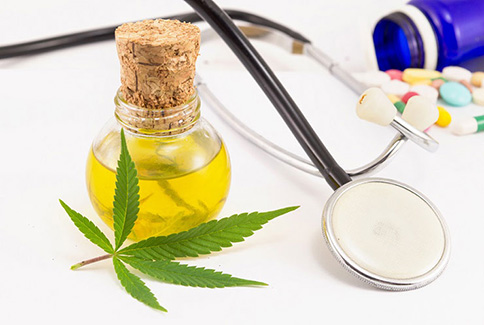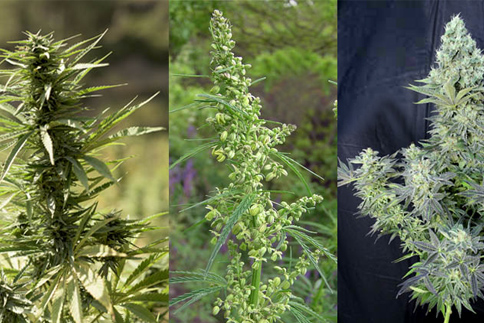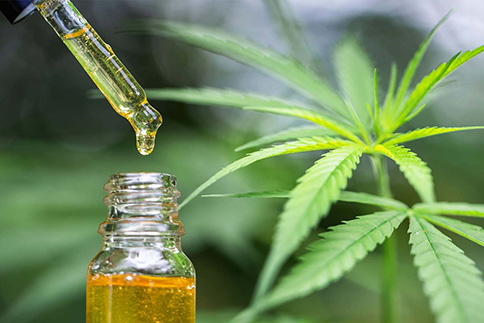Five things to know before taking medical marijuana as an alternative medicine
Five things to know before taking medical marijuana as an alternative medicine

Marijuana continues to gain popularity as alternative medicine, with 36 US states and the District of Columbia having publicly available medical marijuana/cannabis programs.
While some argue that there are not enough large-scale studies to prove the effectiveness of marijuana as a medicine, plenty of anecdotal evidence suggests otherwise.
If you have a medical problem, positive comments from friends and family may lead you to search the internet for marijuana alternatives out of curiosity about your illness. But before you take the next step to self-diagnosis and proceed to consume marijuana as a medicine, there are a few things you should know.
This article covers five things you should know before using marijuana as an alternative medicine:
1. Marijuana will get you high.
2. There are many strains of cannabis with differing effects.
3. There is not enough evidence to confirm that cannabis cures or prevents disease/illness.
4. CBD is not cannabis, but your weed most likely contains CBD.
5. There are many ways to try marijuana -- you don't have to smoke it.
Marijuana will get you high.

THC is a principal component of cannabis and is a psychoactive ingredient that creates feelings of euphoria or relaxation. So if your marijuana product contains THC, it is likely it will make you high.
If you buy medical marijuana, it contains THC, even if it is at a low dosage; depending on your tolerance and how much you consume, you'll likely feel some effects of the THC.
The presence of THC is what differentiates cannabis products and CBD products. If you want to have the benefits of the cannabinoids in marijuana without getting high get a pure CBD extract product.
There are many different strains of marijuana.

Cannabis breeders develop lots of different varieties by cross-breeding different strains. They select the strains known for specific attributes and breed them to create varieties more likely to produce a particular desired outcome.
Some of these effects can be:
Provide extra relaxation
Promote appetite
Help control pain
Support mood
Reduce stress levels
When deciding which strain to buy, consider their potency and choose a provider that lists them explicitly. Most dispensaries will be able to advise you of the properties of a different strain. Indica dominant strains promote relaxation, where Sativa dominant strains create a more energetic, euphoric, and uplifting effect. Also, check the levels of THC, there are low and higher THC strains to choose from so you can limit the high while still getting the health benefits of marijuana.
There isn't enough evidence to conclude that marijuana treats or cures things.
There is a lot of anecdotal evidence that cannabis can help people manage their physical and mental health. Unfortunately, there aren't a lot of clear large-scale studies showing the same thing.
That's why it's essential to follow your doctor's advice and not replace your medication with marijuana without their advice.
Each individual's circumstances are unique, and what works for one may not work for the other. Be sure to take the time to do a lot of research before implementing cannabis as part of an alternative medicine regime.
Marijuana contains THC and other cannabinoids, which have properties that can alter our emotional or physical state. As a result, cannabis can have adverse effects on your medication.
Such as:
Many drugs have a sedative effect. If your THC is also making you tired, you may have trouble waking up after a good night's sleep.
Many drugs have the properties of thinning the blood. Marijuana also thins some people's blood, so mixing the two may increase the risk of bruising.
In some cases, more severe problems have been found, such as a loss of drug absorption or changes in how the liver breaks down the drug.
CBD is not cannabis, but your cannabis will include it.

There seems to be a lot of confusion about CBD products and cannabis products. Maybe it's because we don't always call things by the correct names.
For example, cannabis is a plant from which we can get CBD and marijuana. However, we often refer to marijuana as "cannabis," but usually not the other way around.
A little background:
Cannabis contains both THC and CBD -- chemicals called cannabinoids that interact with the endocannabinoid system. But THC and CBD aren't the only cannabinoids in marijuana or CBD products. There are at least 113 cannabinoids, each with unique medicinal properties. Like THC, CBD in your cannabis has dozens of medicinal properties.
If you use cannabis as an alternative drug, using CBD with THC can offer many benefits.
There are lots of ways to try marijuana -- you don't have to smoke it.
There are many people who want to try cannabis but don't want to smoke. If you've been considering marijuana as alternative medicine but are worried about smoking it, there are other ways to try it.
Other ways to consume marijuana:
Drink tea or other hot drinks
Eat the infused candy
Coating snacks or treats
Baked into cookies and other sweets
Chewing gum
Oral oil or drops
Takeaways: There are thousands of people claiming that cannabis relieves depression, insomnia, eating disorders, chronic pain, and more. If you want to experiment with marijuana as alternative medicine, proceed with caution.
Talk to your doctor to make sure you don't have any cannabis adverse reactions to medications you may be taking.
Marijuana has an interesting and promising record of helping people with many diseases. As we get results from more studies, we'll have a better idea of which strains are most helpful for specific health problems.
